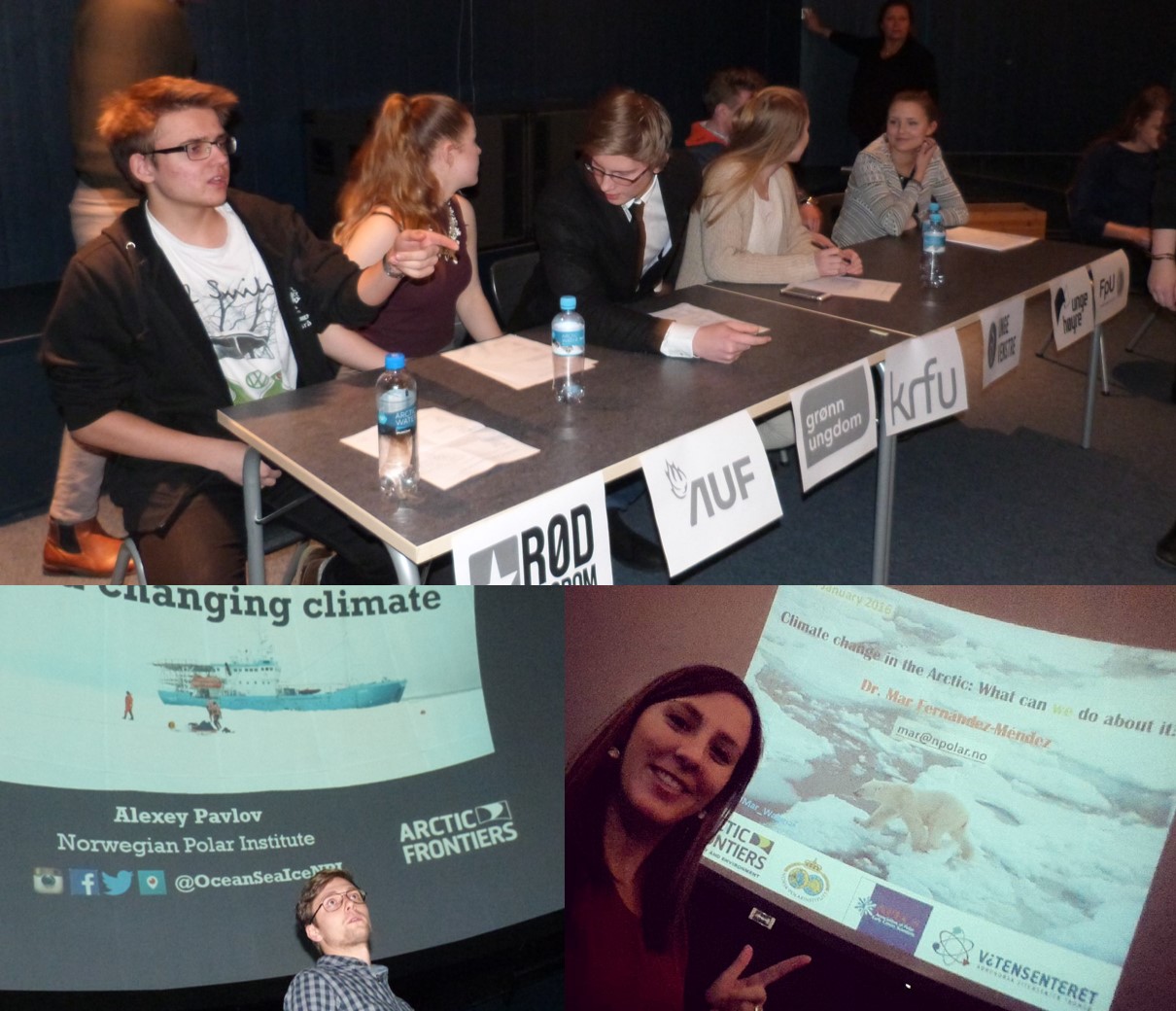The Arctic is changing rapidly due to human-induced global warming. While (us) researchers have known that for the last three decades, no significant progress has been made globally to prevent further warming of the climate in general and the Arctic, in particular. Partly, this is due to the lack of knowledge of decision makers and the public. Climate change misinformation is partially caused by a deficient information transfer from researchers to society, and especially to the younger generations who are still open-minded and eager to change the world.
To improve the situation, this year, a special event for young politicians was organized by APECS during the Arctic Frontiers Conference in Tromsø, Norway. This conference has been a top venue for Arctic politics in the past years and therefore provided the perfect framework for a science-politics exchange. The “Young Politicians” are a group of enthusiastic high school kids from Northern Norway, who are interested in improving the communities in which they live through politics. During this one-day event, they learned about climate change and its impacts from the global to the local scale.
Mar Fernández-Méndez and Alexey Pavlov from the Norwegian Polar Institute and active members of APECS, got a chance to take part in this side event to give two lectures to the young politicians about climate change in the Arctic. Alexey gave an overview of the latest scientific findings regarding global climate change and the rapidly changing Arctic region, thus, setting up the stage for Mar who led a discussion with the kids about possible solutions to mitigate the worse consequences of global warming in the Arctic. The kids were incredibly engaged and keen to discuss all options to prevent temperature rises in the Arctic. They understood quickly that whatever happens in the Arctic, does not stay in the Arctic and will affect northern Norway as well as other parts of the planet. The discussion was very interactive and covered possible solutions form the local to the global scale. Even some controversial topics such as oil production in Norway, reducing meat consumption, and the use of geoengineering approaches to sequester carbon were addressed. It was definitely a thought-provoking discussion that triggered some new thoughts in the young politicians’ minds.
The experience was nice both for us, the researchers and the kids. We improved our communication skills by explaining our science to a non-scientific audience. We were delighted to confirm that the new generations of politicians are willing to make their decisions based on available knowledge and they have learned some things that will be useful for their future careers as politicians dealing with the Arctic. This gives us hope for a future in which creative solutions and efficient political agreements will manage to reduce human-caused climate change. Doing science, investigating the causes of and effects of climate change is not enough if society does not understand the implications of the scientific conclusions. We therefore encourage every researcher to engage in this kind of outreach activities so that we (researchers) can, step by step, educate future generations and thus provide them with the necessary tools to change the world to a better place.



